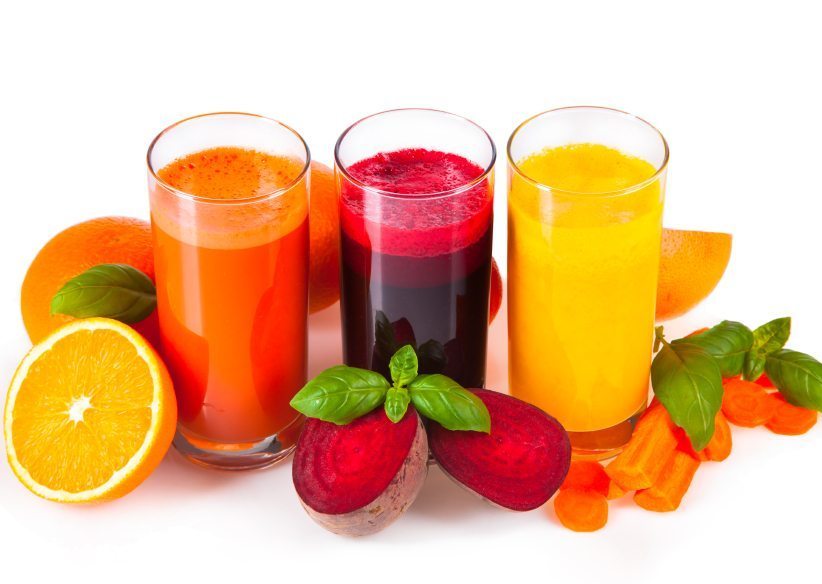
Just thinking of a juice cleanse makes my stomach drop. The thought of not enjoying the crunch of solid foods leaves me wary of juice cleansing. However, many people claim to reap amazing benefits from the practice. Ridding bodies of toxins, for some people, leaves them with flawless skin, improved energy and mood, and the chance of having a fresh start to a healthy diet. But before we all chuck our breakfast plates and trade them in for a cup of juice, we need to know: is juice cleansing a safe, healthy means of giving your body a break from digesting solids?
SEE ALSO Daily Bite Wellness Tip: Beet juice for Youthful Skin
A juice cleanse, or juicing, is a diet consisting of fruits and vegetables processed into a smoothie-like drink. Some people believe that drinking all the extra vitamins and minerals as opposed to eating them will allow them to absorb into the body more efficiently. Many believe that this diet, which excludes meats, sweets, and other “unhealthy” foods, will give your body a fresh, new start; however, according to the informational website How Stuff Works, “the cons [of juicing] can include muscle loss, a slowing of metabolism, and an onset of unhealthy eating habits,” post cleanse.

After a cleanse, many people find that they not only increase the amount of foods they eat, but they also gain weight. The fitness website POP Sugar points out that juice cleanses are “more anecdotal rather than scientifically based,” meaning that many people have different experiences and opinions with juicing but there is not much scientific support. Some people, however, still swear by juicing. According to Dr. Oz’s website, The Dr. Oz Show, Dr. Joel Futhrman, author of The Super Immunity Diet, says, “juicing floods your system with powerful nutrients and antioxidants […and] juicing can be beneficial for people with elevated cholesterol and high blood pressure, and those suffering from autoimmune diseases, like arthritis, digestive problems and skin conditions,” and it might gear us towards starting a new healthy life-style.
Additionally, “Valuable compounds called flavonoids and anthocyanins are abundant in a variety of fruits and vegetables and guard against oxidative cellular damage, which comes from everyday cellular maintenance and is exacerbated by exposure to chemicals and pollution,” according to The Dr. Oz Show. While drinking these nutrients instead of eating them might provide our body with beneficial nutrients, some experts claim that juicing isn’t healthy and, in some cases, might actually be harmful.
SEE ALSO How Much Is Too Much? Recommended Daily Food Intake
A substantial con of juicing is that fiber and protein are often missing from one’s diet. Without fiber and protein, we won’t feel full for long, and lacking protein will cause muscle mass to decrease. Working out while juicing can be dangerous because juicing might not provide enough food to fuel you through your usual workout. The website for ABC News states that doing juicing and exercising at the same time can “result in breaking down muscle mass, which can up your injury risk and lower your metabolic rate,” so it might be wiser to skip the gym if you do try juicing.
Verdict: There is a lack of evidence supporting whether or not juice cleansing is healthy, but most experts “agree that going on a juice fast is unnecessary for ridding your body of toxins,” according to Pop Sugar. Experts claim our kidneys and liver give our body all the cleansing we need. It is important to speak with your doctor before trying any juice cleanse to find out if cleansing is a healthy option for your body. When you talk to your doctor, be sure to discuss how long it is healthy for you to juice. Juicing is an individual diet that requires extensive research as well as information and guidance from doctors or nutritionists.
For more on Food & Fitness, check out our features here.

I do not and will not EVER condone juice cleanses, EVER! Where’s the protein and the fiber?!?!?!?!?!